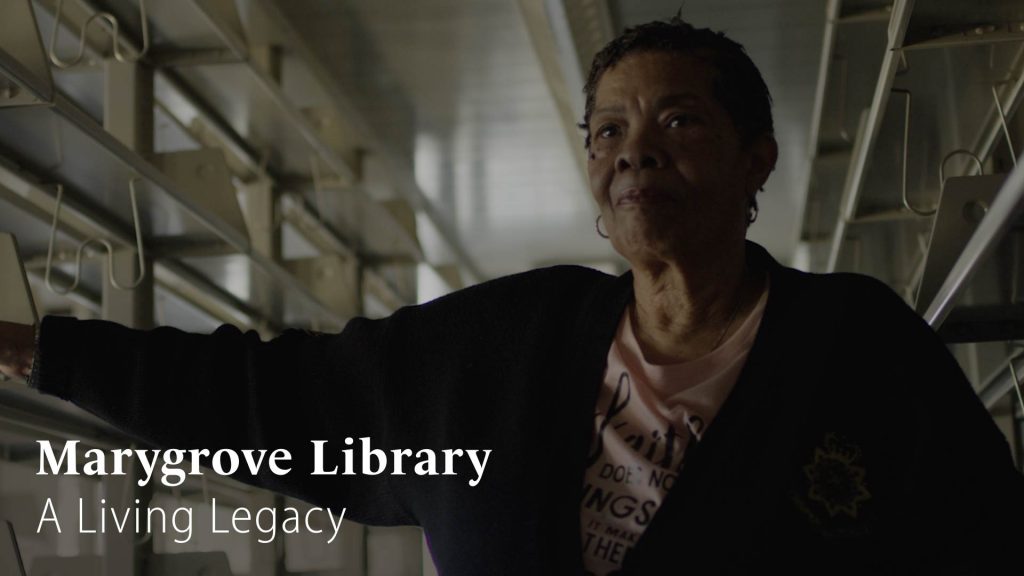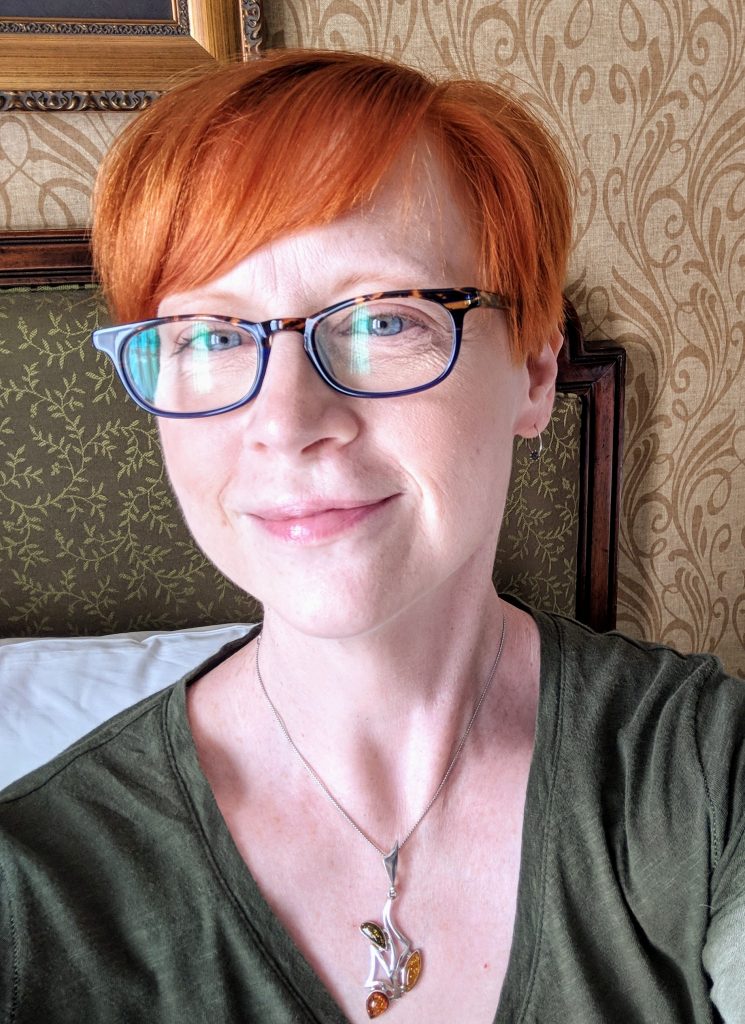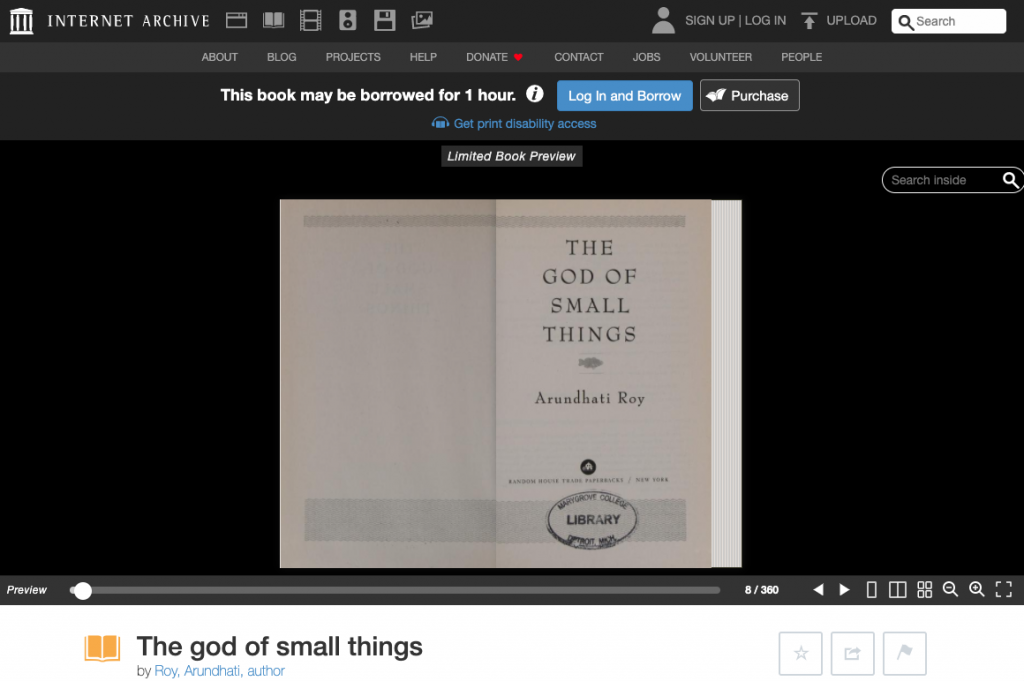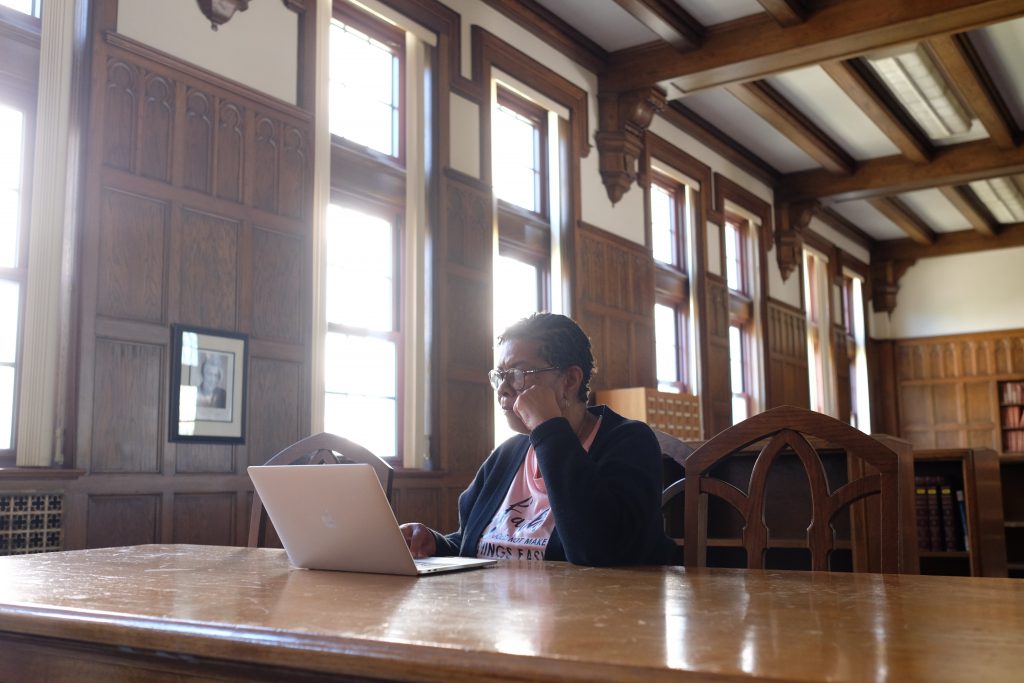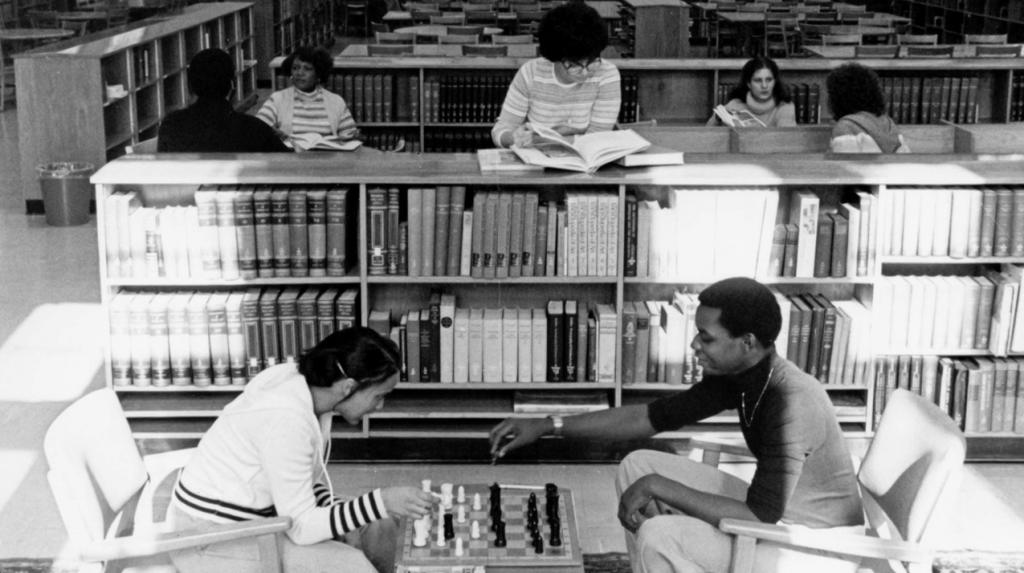
For nearly 100 years, the Marygrove College library was the hub of activity on campus. The small, liberal arts college in Detroit didn’t have a student union, so the library served as the heartbeat of campus, offering students a place to study, learn and socialize.
“The Marygrove library was very unique. It was a place where students came for help and to see their classmates,” says Laura Manley, a librarian from 2005-2015. “If they didn’t understand something about an assignment, they would find out from others and network in the library.”
As enrollment dropped and financial pressures mounted, the college closed in December 2019. The fate of the library collection was uncertain. Administrators explored avenues to sell or dispose of the books but decided instead to donate the entire collection to the Internet Archive. More than 70,000 volumes were boxed up and then scanned into a digital format. The physical copies were put into storage and the Archive makes one digital version of each item available for free check out through its Controlled Digital Lending (CDL) program.
Rather than shut its doors permanently, the library has a new home online. The Internet Archive celebrated the reopening of the Marygrove College Library last October, offering a way for the heart of the Marygrove campus to keep beating.
“I was thrilled with the idea that the collection went as a body and could live on,” says Jennifer Meacham, who worked at the library for 15 years. “The library had a long history of expanding to meet the growing needs of the student body as it changed.”
Marygrove began as a Catholic women’s college, eventually becoming co-ed and predominantly African American, reflecting the demographics of the surrounding community. Professors emphasized not just learning in the classroom, but the importance of making the world a better place, says Meacham. That translated into a need for materials on social justice issues. And because librarians worked closely with students, they were able to learn about their specific research projects and purchase materials tailored to their interests.
As Meacham curated the children’s book collection at Marygrove, she intentionally bought books with black and brown characters covering issues that were relatable to students who teachers graduating from the college would have in class. Once the collection was made available online, Meacham says she eagerly browsed through the diverse collection and was pleased to know it is now freely available to anyone.
Jeffrey Zachwieja was hired in 1996 as a reference and instruction librarian as Marygrove was beginning to move from card catalogues to an automated system with electronic databases. “We wanted to preserve the past, but move to the future,” says Zachwieja, who built the library’s first website. Care was taken to keep the collection current while keeping books that reflected the deep history of various fields of study at the college, including education and religion.
The library became a go-to spot for technology, providing many students with their only access to the internet or a computer. Librarians provided individual support to students as they navigated new platforms and software programs.
Students needing help at the library reflected the span of the student body from undergraduates who had come through the Detroit Public Schools to graduate students in their 30s and 40s. Manley says it was fulfilling to work with the students one-on-one, especially those who had limited technology experience and relied heavily on the library.
Meacham says the library tried to provide a range of services in all things related to information. Librarians recommended materials for research papers, direction on bibliographies, feedback to make sure students weren’t plagiarizing, and an audience to practice a presentation. “The library was seen as a human resource,” she says. “We had a very good reputation and would bend over backwards for students and faculty,” she says.
Manley says the experience at Marygrove changed how she viewed access to education.
“I went from thinking when I first started my career that people should succeed by merit. But what I witnessed is there were all kinds of bright students who should have knowledge readily available. But they had to struggle because of reasons that were no fault of their own,” says Manley. “Whether they didn’t have a solid enough K-12 or it was socioeconomics, not everyone starts at the same playing field. Sometimes you have to bring someone up to speed to be able to fly. They are just as worthy and have just as much potential.”
Librarians at Marygrove went beyond their traditional role to help support students. “Our goal was to help students succeed. Once they had a foundation, they could do anything,” Manley says.
If you’d like to learn more about the Marygrove College Library, you can watch a video about the collection and read more about the donation in our previous blog posts.
